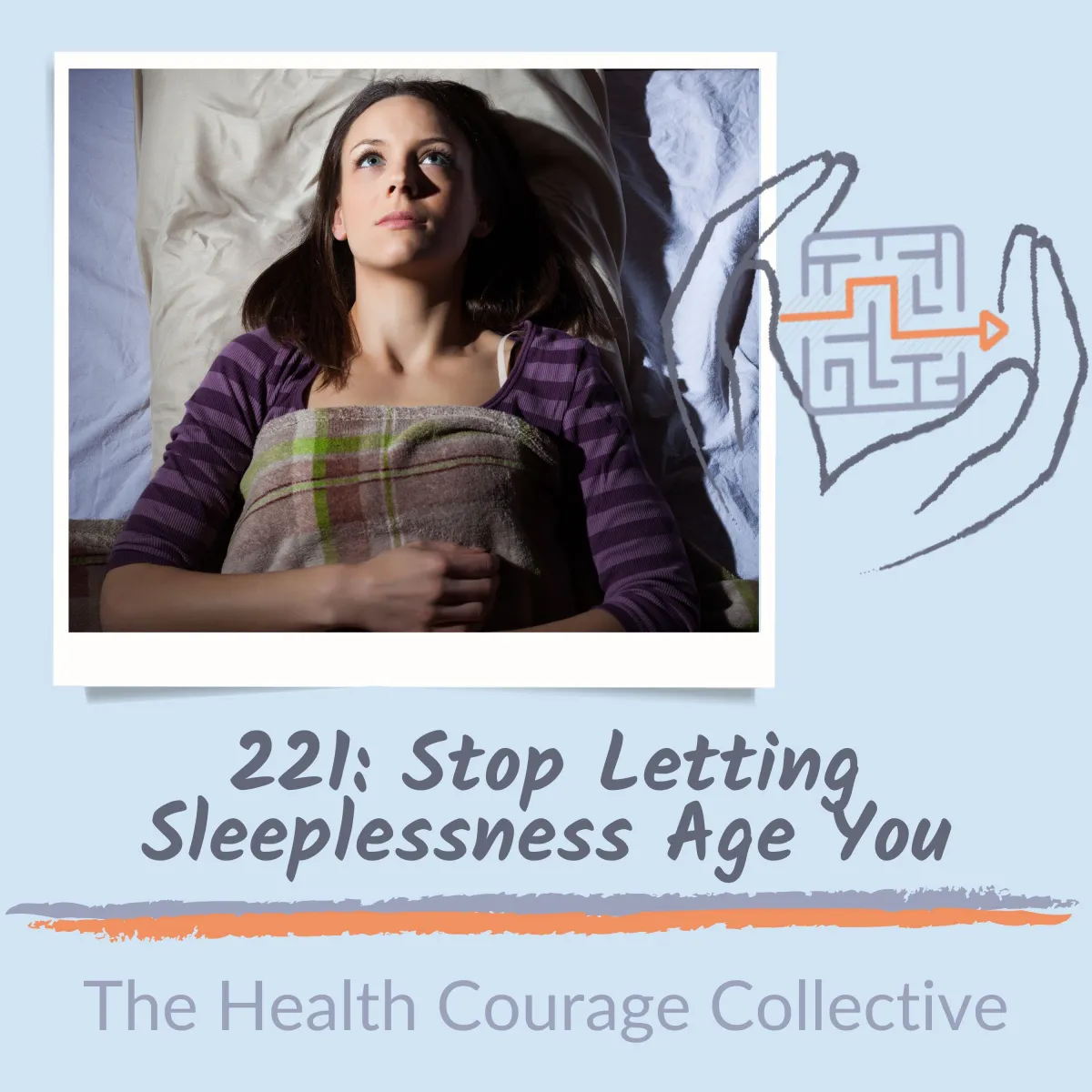If you're too busy to slog through hours of generalized, inapplicable and often contradictory health information, but too smart to ignore that a few minutes of focused attention now can prevent years of suffering in the future, this show is for you! It's time to fearlessly look forward to your next 40 plus years, age like a pro, and have fun doing it!

Stop Letting Sleeplessness Age You
Stop Letting Sleeplessness Age You
Many women notice changes in sleep quality as hormones shift in their 40s and 50s. Night sweats, hot flashes, anxiety, or racing thoughts can make falling—and staying—asleep a daily battle.
But insomnia isn’t just “not being tired.” People with chronic insomnia are fatigued yet wired, struggling with alertness and focus during the day, unlike someone who simply had a bad night’s sleep.

The DIY Path to Better Sleep
The most effective non-drug solution is Cognitive Behavioral Therapy for Insomnia (CBT-I)—a structured program that retrains your body and mind to sleep naturally. Here’s the framework in simple terms:
1. Optimize Your Body Clock

Get early morning sunlight exposure to anchor your circadian rhythm.
Keep a consistent wake-up time every day.
Limit bright artificial light after sunset to signal your body it’s time to wind down.
2. Harness Your Sleep Driver System

Only go to bed when you feel sleepy—avoid trying to force sleep.
Avoid lying awake in bed; if insomnia strikes, get up and do a calm, non-arousing activity.
Track the sleep your body can actually produce, then work backward to calculate your bedtime.
3. Calm the Busy Mind
Schedule “worry time” earlier in the day to prevent nighttime catastrophizing.
Use progressive muscle relaxation, journaling, or meditation to quiet racing thoughts.
Create a wind-down ritual—take a bath, go for a walk, fold laundry—anything that signals your brain it’s time to transition to rest.
When to Seek Extra Help
If your insomnia persists, it may be influenced by:
Hormonal changes (consider discussing bioidentical hormone support with your doctor).
Sleep apnea or restless leg syndrome.
For most adults, working with an accredited CBT-I provider or following a structured workbook like Quiet Your Mind and Get to Sleep can be transformative. Consistency is key—the method works if you stick to it.

CBT-I directory: https://cbti.directory/
Book: Quiet Your Mind and Get To Sleep: https://www.abct.org/books/quiet-your-mind-and-get-to-sleep-solutions-to-insomnia-for-those-with-depression-anxiety-or-chronic-pain/
Key Takeaways
Poor sleep accelerates aging and chronic disease.
Midlife insomnia is common, but it can be fixed without drugs.
Focus on body clock, sleep driver, and mental calm.
Stick to a structured plan—you’ll gradually restore restorative sleep.
Stop letting sleeplessness steal your energy, your health, and your youth. With the right tools and mindset, better sleep—and a better, longer life—is within your reach.
© Copyright 2023 The Health Courage Collective - Privacy Policy - Disclaimer

